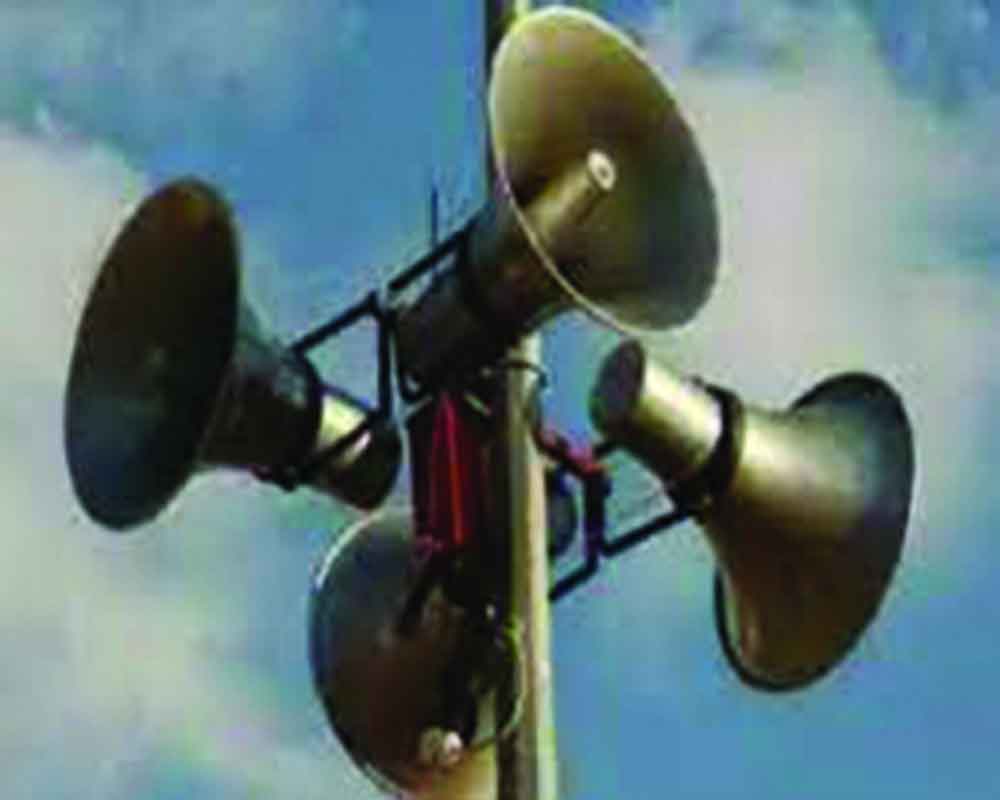Religious beliefs are indeed private and should not infringe on the fundamental rights of non-believers or members of other communities
The decision of the Uttar Pradesh Government to restrict the use of loudspeakers in public places is a progressive step taken by any government in present times. India is the only country in the world where ‘scientific temper’ is instilled in the constitution. We conduct lots of science popularization activities to impart scientific temper amongst its citizens, but our citizens rarely follow scientific principles in real life. Only when we face problems we look up to science for solutions. Noise through loudspeakers is a burgeoning problem across the country, be it in urban areas or rural areas.
Much of the noise is caused by vehicles, machines and political and cultural rallies and processions. But the noise made by religious groups is difficult to control. They play loudspeakers at maximum volume. In a secular country like India, every person has the right to believe and follow the religion they like, but every religious activity should be in their private space. Religious beliefs are indeed private and should not infringe on the fundamental rights of non-believers or members of other communities. During religious festivities, members of every religion use music systems in public spaces to promote their function or to appease ‘God’.
Interestingly the loudspeakers were invented in the early 1900s, whereas all our prominent religions came into existence thousands of years before. It was in 1861 that Johann Philipp Reis installed an electric loudspeaker in his telephone, that was capable of reproducing clear tones, but later revisions could also reproduce muffled speech. But it was Alexander Graham Bell who patented the first electric loudspeaker (capable of reproducing intelligible speech) as part of his telephone in 1876. Commercial production of loudspeakers started only in the 1930s.
How can an invention that became popular in the world during the early 1900s become an indispensable part of age-old religion? The loudspeaker was never a part of any religion. It was incorporated into religious activities for the convenience of religious leaders, which made their task of communicating with the congregation easily. The use of a public address system by spiritual leaders has made a disconnect from the community. Priests of today rarely understand the problems faced by the community members because of this humane disconnect. The role of spiritual leaders should be to bring transformation and enlightenment to society.
But still across the country in temples, masjids or churches all festivities are followed bythe playing of music or sermons at very high decibels. The organizers rarely have any concern for students who are preparing for exams or elders and patients staying at home and in hospitals. On some hospital campuses that host places of worship, during special days music is played at high voltage, without even caring about the plight of patients. Religion and politics are highly volatile subjects and even if someone questions controlling high decibel sound it may lead to unrest. This shows our inability to accept science.
Despite valid scientific data that show adverse effects of noise pollution, our policymakers or the public are rarely concerned about controlling noise pollution. Even in colleges that teach science and technology, sound is the main ingredient in student festivals. On most campuses concerts are held with sound boosters, that create more than 100 decibels of sound. DJ parties have become the part and parcel of youth life. Even while going for study tours our college students play prefer buses having high-end music systems like JBL Sound System, which is capable of producing sounds higher than 100dB.
Sadly our present-day teaching community and college managements also promote such activities, to please the students and win their hearts. The learned centres that should act as agents of transformation in the lives of our children through knowledge delivery also fail in their prescribed objective.
In a society, everyone needs a space for peaceful living. Entertainment, religion, political ideology everything is a personal choice. Everyone has their own choice. But it should never infringe on the space of others. In public transport systems like metros trains and flights, there is a frequent announcement that the playing of music is not permitted. People usually don’t object to this rule, as they are frequently reminded not to do so. The same should be followed in every public sphere. We should develop a culture where scientific principles are followed in our society. If everyone follows science peace and development in our society. The latest progressive decision by the Uttar Pradesh government if successfully implemented throughout the country shall bring solace to hundreds of students, elders and people having health issues.


























